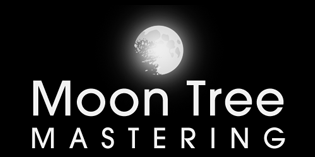Welcome to the world of audio production, where every note, beat, and vocal is carefully crafted to create a harmonious experience for the listener. In this article, we delve into the fascinating realm of EQ and mastering, two essential components that can elevate your audio to new heights. Whether you’re an aspiring musician, producer, or simply a curious enthusiast, understanding EQ and mastering will empower you to unleash the full potential of your sound.
What is EQ and Why Does it Matter?
Equalization, or EQ for short, is the process of adjusting the frequency balance of audio signals. It enables us to enhance or attenuate specific frequencies, shaping the overall sound to achieve desired tonal characteristics. EQ plays a crucial role in audio production, allowing us to create clarity, separation, and balance within a mix. By intelligently controlling frequencies, we can emphasize the strengths of individual instruments and vocals while mitigating any unwanted resonances or muddiness.
Mastering: The Final Touch
Once you have your mix sounding great, it’s time to consider the process of mastering. Mastering is the art of refining and polishing the final mix to ensure it translates well across different listening environments and platforms. It involves optimizing the overall tonal balance, dynamics, stereo width, and loudness of the music. A skilled mastering engineer applies a delicate touch to bring cohesion, clarity, and commercial loudness to the tracks.
The Relationship Between EQ and Mastering
EQ and mastering are intrinsically linked. While EQ is used during the mixing stage to shape individual elements, it also plays a significant role in the mastering process. During mastering, EQ can be applied to enhance the overall tonal balance, address frequency imbalances, and make the music shine on a variety of playback systems. It helps in creating a cohesive and consistent sound across all the tracks of an album.
Techniques and Tips for EQ and Mastering
- Focus on Subtractive EQ: Instead of always boosting frequencies, try reducing or attenuating problematic frequencies to achieve a cleaner sound.
- Embrace Dynamic EQ: Dynamic EQ allows you to dynamically apply EQ based on the input signal’s amplitude, helping you control specific frequencies only when they become problematic.
- Utilize Multiband Compression: Multiband compression enables you to target specific frequency ranges, controlling dynamics and improving the overall balance.
- Reference Tracks: Use professionally mixed and mastered tracks as a reference to understand the tonal balance and loudness standards for your genre.
- Pay Attention to the Meters: Keep an eye on peak and RMS meters during mastering to ensure the final mix is optimized for both quality and loudness.
Conclusion
EQ and mastering are vital tools in the audio production process. By mastering the art of EQ, you gain the ability to sculpt and shape individual elements within your mix. With skilled mastering, you can elevate your music to a professional level, ready to captivate audiences across various platforms and listening environments.
FAQs
Can I master my own music, or should I hire a professional?
Mastering your own music is possible, but it requires a thorough understanding of the process and specialized equipment. Hiring a professional mastering engineer is often recommended to ensure optimal results.
How long does it take to master a song?
The time required for mastering a song can vary depending on various factors, including the complexity of the mix, the experience of the engineer, and the specific requirements of the project. Typically, it can take a few hours to several days.
Are there any free tools available for EQ and mastering?
Yes, there are several free EQ and mastering plugins available, but it’s important to note that the quality and features may vary. Investing in professional-grade plugins and software can greatly enhance the mastering process.
Can I use EQ and mastering techniques for live sound?
While EQ is commonly used in live sound to shape the overall sound of a performance, the concept of mastering is primarily associated with studio-based post-production. However, some basic mastering techniques can be applied to live recordings for improved clarity and balance.
How do I know if my mix requires more EQ or mastering adjustments?
Trust your ears and rely on reference tracks to compare your mix’s tonal balance and loudness. If you notice inconsistencies or areas that need improvement, additional EQ and mastering adjustments may be necessary.
Remember, EQ and mastering are artistic processes that require practice, experimentation, and careful listening. Embrace the power of these tools to unlock the true potential of your audio and take your productions to the next level.
